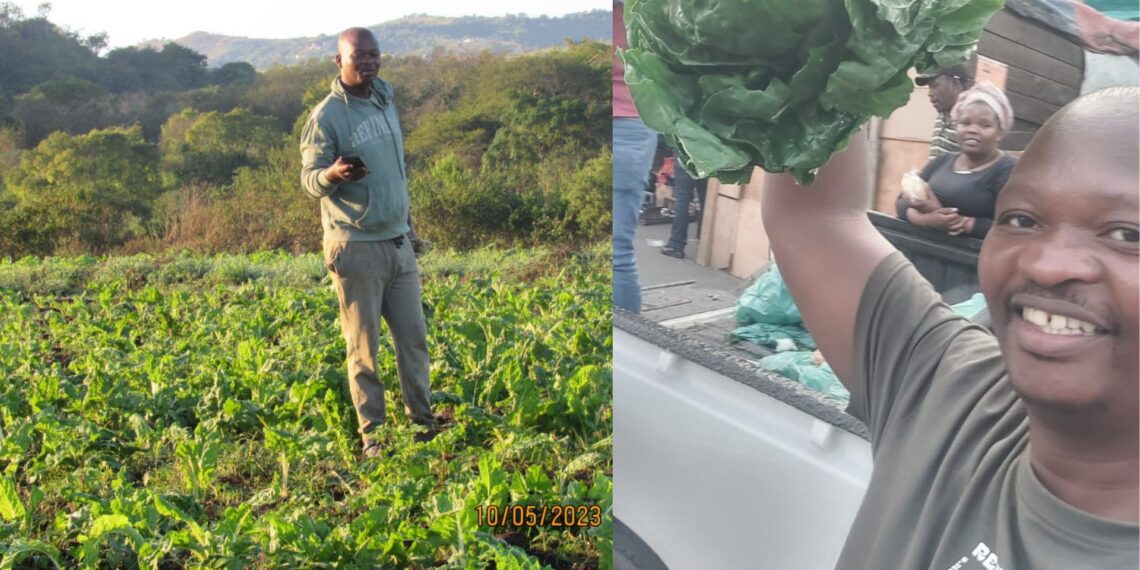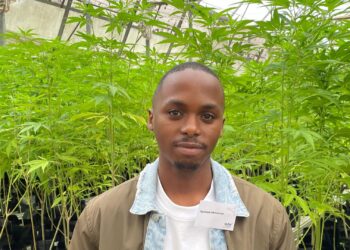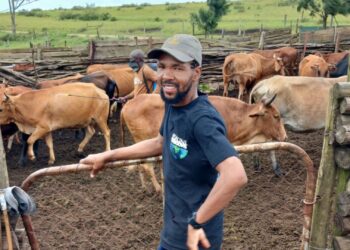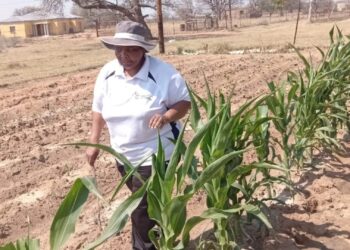At Ihawu Lesizwe Youth Farm in KwaZulu-Natal (KZN), Christopher Mkhize is driving a vision that blends youth empowerment with food security. The farm creates opportunities for young people to learn practical farming skills while supplying the community with fresh, affordable produce.
Mkhize’s passion for agriculture was shaped in a small school garden in KZN, where, as a child, he spent his mornings watering seedlings and watching them grow. Those moments inspired him to study community extension, setting him on a path to lead change through farming.
A community co-op takes flight
Ihawu Lesizwe is a co-operative founded by Mkhize in 2021. It operates on five hectares of communal land in the Ugu District, within the Umzumbe Local Municipality near Port Shepstone.
The project launched in March 2022 with a focus on vegetable production. They mainly grow cabbage, spinach, green peppers, chillies, potatoes, maize, dry beans, and butternut.
Mkhize started the co-op after losing his job for running a business while still employed, which pushed him to return to farming, a passion he had held since childhood.
Four members later joined the co-operative, helping to build on the work he started. Each member has defined responsibilities: Mkhize is project manager; Smangele Khomo handles administrative work; Sbahle Khumalo is treasurer; Bonokwakhe Zindela manages mechanisation, including repairing water pumps, irrigation systems, and tractor implements; and Akhona Chiliza oversees day-to-day farm operations.
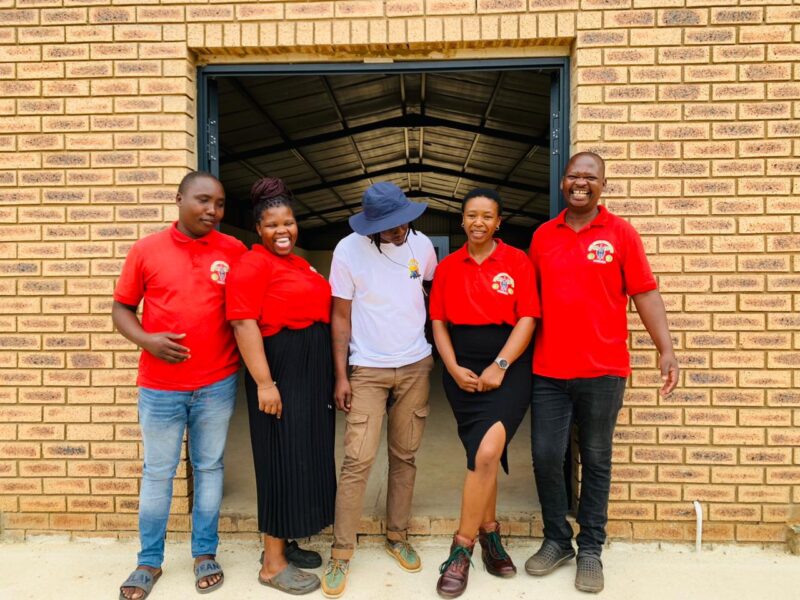
Seed is planted
His interest began at Ndunge Primary School, where his teacher, Ms Mseleku, introduced learners to a school garden.
Early mornings spent watering seedlings left a lasting impression. In high school, he chose agriculture as a subject, and their neighbour, Bernard Nombika, often spoke to the children about the importance of farming.
From 2008 to 2010, Mkhize studied community extension at Mangosuthu University of Technology. After completing his studies, he undertook an internship with the department of agriculture in the Ugu District from 2011 to 2013.
Mkhize has built his career around empowering communities through practical farming.
In 2015, he joined a local NGO as a farming facilitator, training farmers in vegetable production, soil management, composting, mulching, watering, seedling care, planting, and the use of organic fertiliser. He also helped them access markets and provided mentorship to improve household nutrition, strengthen self-reliance, and support the local economy.
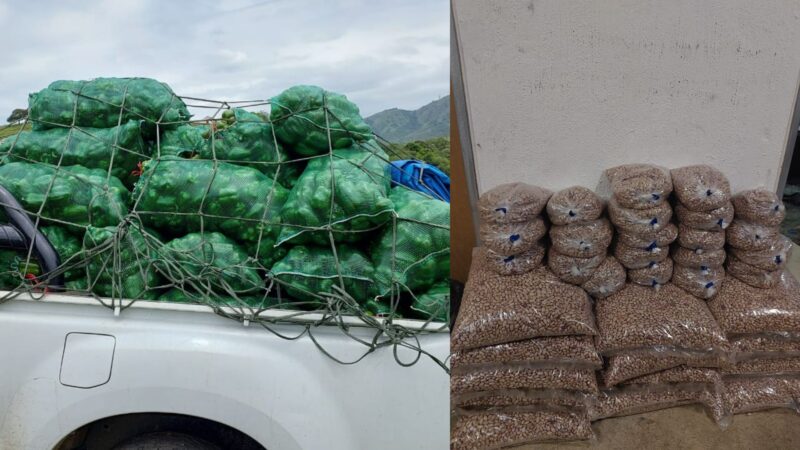
Three years later, he was hiring local youth at the NGO, teaching them practical farming skills and guiding mentors on managing conflicts in community gardens.
Around the same time, he started poultry farming in his community, raising day-old chicks and selling eggs, though financial constraints and renting a space limited the venture’s growth.
Recognising a gap in youth programmes and government support, Mkhize founded Ihawu Lesizwe in 2021.
Farming for impact
Although the business is still new, Mkhize says they have received support from several sources. Chief Sfiso Shing helped secure rent-free communal land, while the Sedfa Rural Development, department of agriculture, and Umzumbe Municipality provided fertilisers, seeds, jerry tanks, and a water pump.
“I realised I needed to shift the game and work with what could be supported.”
The people of Umzumbe have always been supportive, although the co-operative is still seeking formal market channels. Currently, they supply Spar and Boxers Superstore in Umzumbe and secured funding for a bakkie through the Seda agency. Sfiso also assisted with fencing.
“We have built strong relationships with MB SuperSpar, Dip SuperSpar, street vendors, and farm-gate customers,” he says.
However, there is still a lot needed to operate fully. At present, only two hectares are irrigated using sprinklers and a Honda water pump.
“We need agro-logistics for easier market access, agrochemicals for maintenance, fertilisers for better yields, and packaging to ensure our produce stands out on the shelf.”
Christopher Mkhize
On their five-hectare land, one hectare each is currently planted with green peppers, spinach, cabbage, tomatoes, and butternut. The next goal is to fully cultivate all five hectares and introduce hydroponic tunnels.
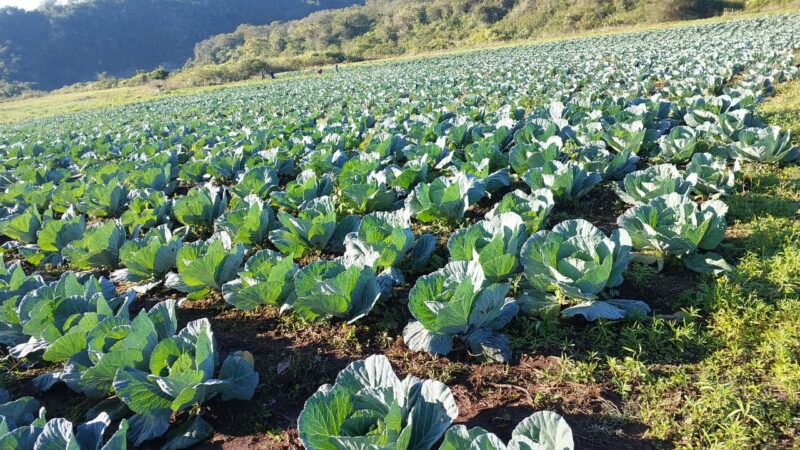
Mkhize adds that he demand for fresh produce from local retailers is very high, allowing the cooperative to produce larger volumes, reduce food waste, and contribute to improving food security and nutrition in the community.
The co-op also aims to address unemployment by creating permanent and seasonal jobs, and their vision is to become the best small-scale farm supplying high-quality produce across South Africa at an affordable price.
They pledge to fight food insecurity in rural communities, eradicate poverty, improve nutrition, and practice environmentally friendly farming. And that is an impact that will grow not just the business, but the community and Mzansi.
ALSO READ: Former teacher plants knowledge, harvests success in Limpopo



